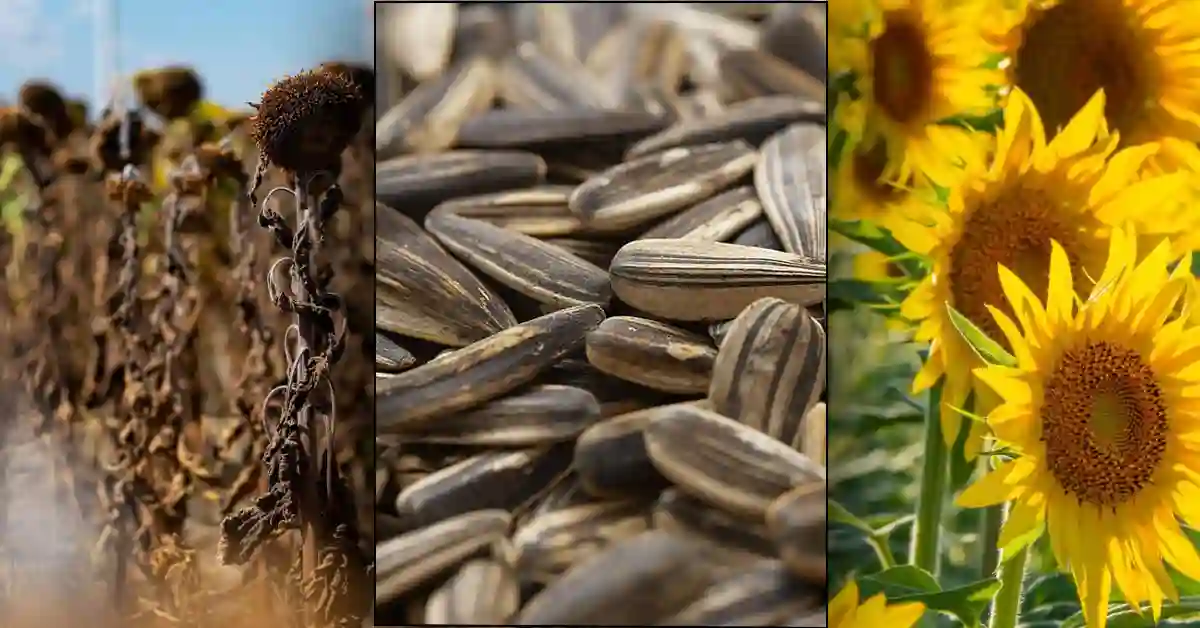Hey there! If you’re like me, you love finding snacks that are both tasty and packed with nutrients. Sunflower seeds fit the bill perfectly. Over the years, I’ve enjoyed them at casual gatherings, sports events, or just while relaxing at home. They’re a great source of healthy fats, protein, and essential nutrients.
In this guide, I’ll share the benefits of sunflower seeds and tips on how to choose the best sunflower seeds. Whether you’re new to sunflower seeds or a long-time fan, this is for you.
Table of Contents
Best Sunflower Seeds for Eating
The best sunflower seeds for eating are fresh, crunchy, and perfectly roasted. Here are some top choices to enjoy:
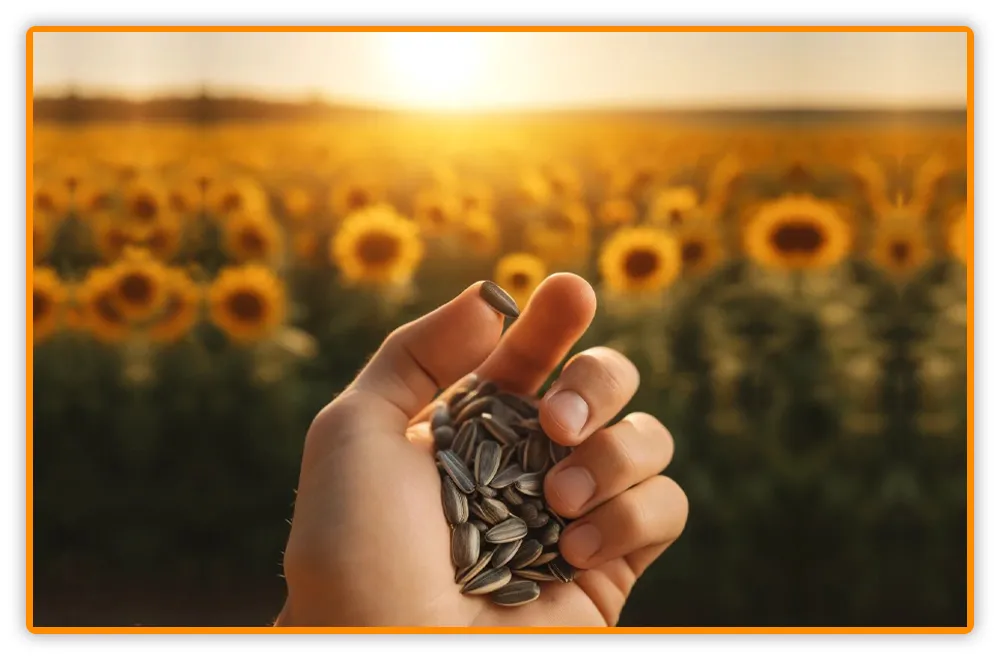
Types of Sunflower Seeds
Raw Sunflower Seeds: These are packed with nutrients and have a natural, nutty flavor. They are the healthiest sunflower seeds to eat because they retain all their vitamins and minerals.
Roasted Sunflower Seeds: Roasting enhances their nutty flavor and adds a delightful crunch. They are great for snacking and can be seasoned in various ways.
Shelled Sunflower Seeds: These are convenient and ready to eat. They are perfect for adding to salads, oatmeal, and yogurt. If you’re looking for ease and speed, these are the best sunflower seeds for eating.
Best Sunflower Seeds Flavor
Finding the best flavor is all about personal preference. Here are some popular choices:
Classic Salted: A perfect balance of taste and crunch. This is a safe bet if you like traditional flavors.
Spicy Flavors: For those who like a bit of a kick, spicy flavors can be a real treat.
Sweet Flavors: Honey-roasted sunflower seeds add a delightful twist. These are great if you prefer a sweeter snack.
Best Sunflower Seeds Brand
Sunflower seeds are a favorite snack because they’re crunchy, easy to carry, and healthy. But with so many kinds and flavors, picking one can be hard. Let’s look at some top choices, see what makes them special, and help you find the best sunflower seed brands for you.
Top Brands :
Spitz Sunflower Seeds: These come in bold flavors like Cracked Pepper and Dill Pickle. They are perfect for those who love strong tastes. My favorite is the Cracked Pepper flavor; it keeps me awake during late-night writing sessions.
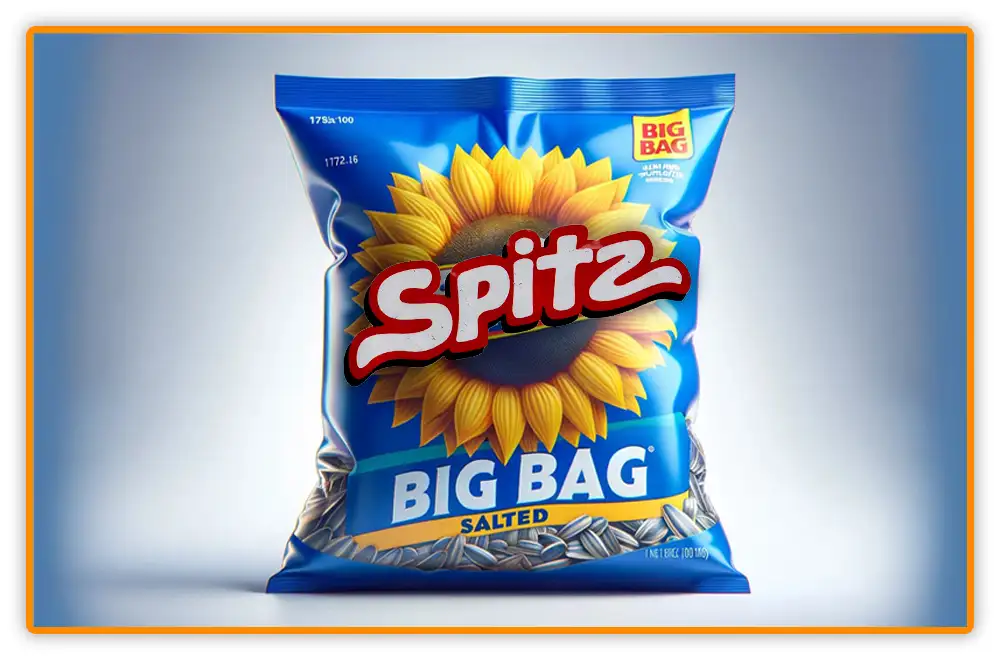
David Sunflower Seeds: Known for their Original Jumbo seeds, David offers big, full seeds that are great for snacking. They have both raw and roasted types. I always have these on road trips; they never disappoint.
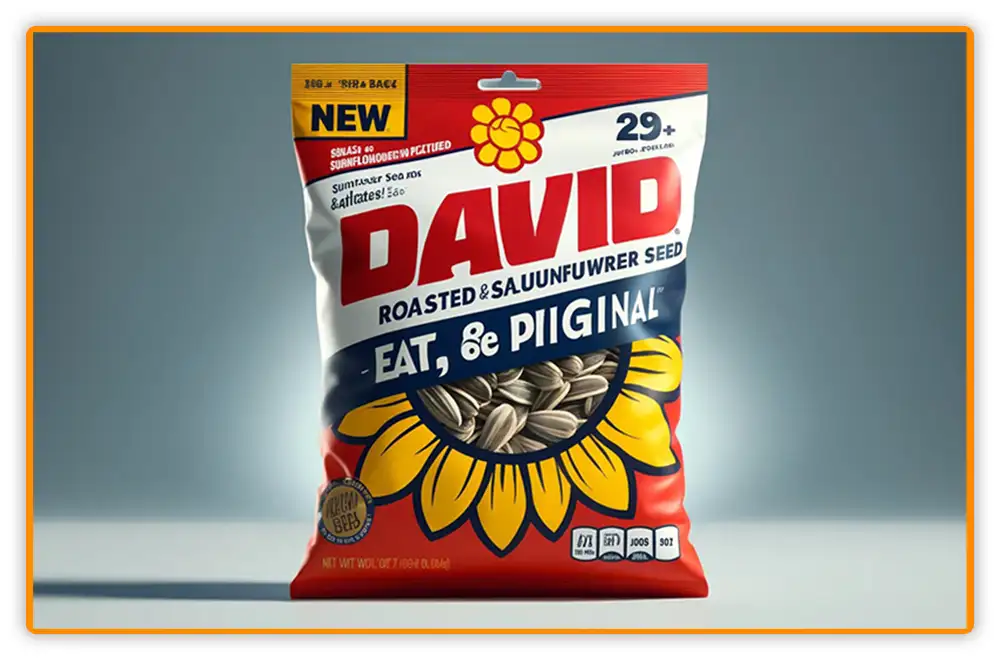
Bigs Sunflower Seeds: Bigs brings exciting flavors like Sizzling Bacon and Old Bay Seasoned. I first tried Sizzling Bacon at a BBQ, and it was a huge hit with everyone!
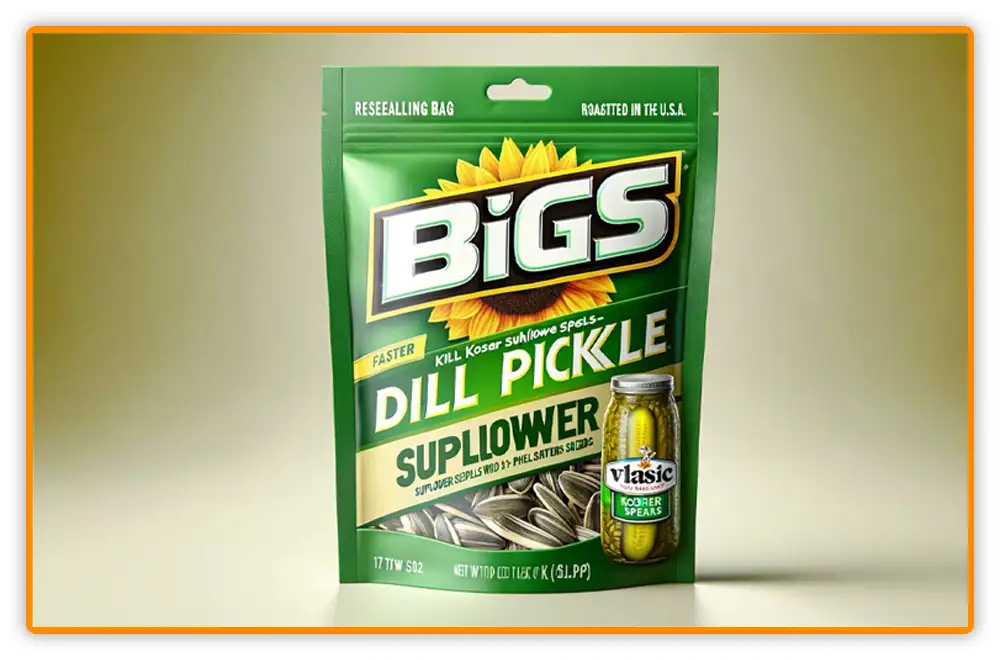
Health Tips for Eating Sunflower Seeds
Allergy Alert: Some people may be allergic to sunflower seeds. If you have nut allergies, be cautious and check first.
Digestive Tips: Eat sunflower seeds in small amounts to avoid stomach issues. Moderation is key to enjoying them without discomfort.
Balance is Key: Don’t rely solely on sunflower seeds. Mix them with other nuts and seeds for a balanced and nutritious snack.
Nutrient Rich: Sunflower seeds are full of nutrients but also high in calories. Knowing how much sunflower seeds to eat daily helps you get the benefits without overdoing it.
Salt Watch: Opt for low-sodium roasted seeds to keep your salt intake in check. I prefer the low-sodium variety for a healthier snack.
What Happens if You Eat Too Many Sunflower Seeds?
Eating too many sunflower seeds can lead to stomach pain, bloating, and constipation. High calorie intake can cause weight gain, and too much salt can harm your heart and kidneys. Enjoy them in moderation.
What Makes the Best Sunflower Seeds?
The best sunflower seeds are fresh, crunchy, and perfectly roasted with a touch of salt. They should be flavorful, nutritious, and free from preservatives for the best snacking experience.
Read More : How to Eat Sunflower Seeds
Nutritional Powerhouses: Health Benefits of Sunflower Seeds
Sunflower seeds are full of good stuff for your body. They help your heart, bones, and mood. Plus, they’re tasty and give you energy.
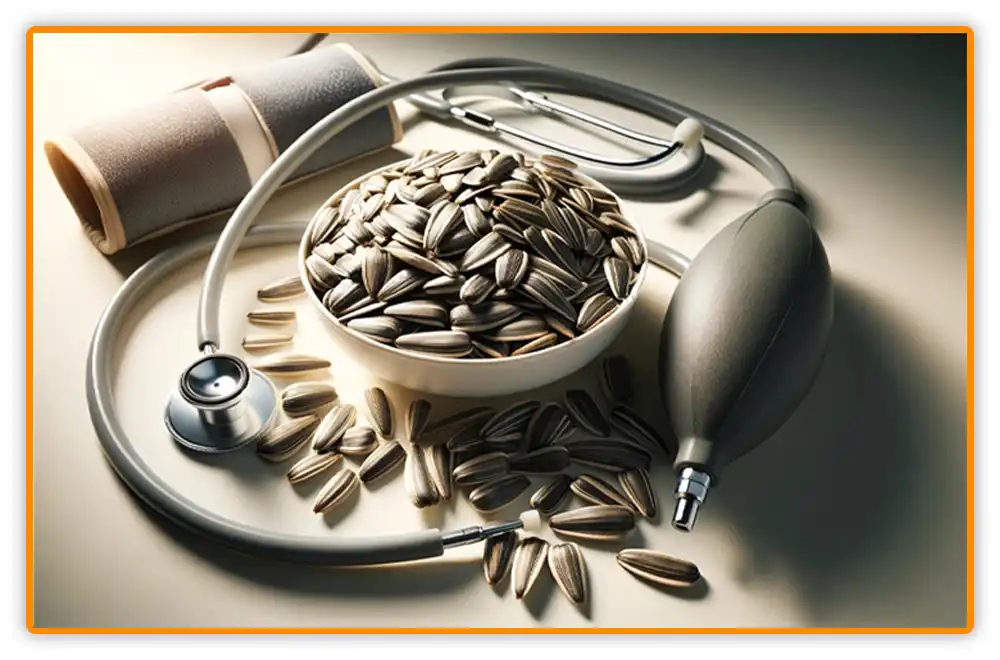
Nutritional Profile Overview
Sunflower seeds have lots of good stuff like Vitamin E, magnesium, and selenium. Eating a quarter cup can give you a lot of what your body needs each day for these nutrients. They help keep your body strong and healthy in many ways.
According to a USDA study, 100 grams of dried sunflower seed kernels offer:
- Calories: 584
- Protein: 20.8 grams
- Fat: 51.5 grams
- Carbohydrates: 20 grams
- Fiber: 8.6 grams
Health Benefits of Sunflower Seeds
Fights Inflammation
Eating sunflower seeds can reduce signs of inflammation in the body. This is because they are full of vitamin E and other helpful plant stuff. Less inflammation means a lower chance of getting some long-term health problems. I’ve noticed a big difference in my joints since I started adding these seeds to my diet.
Keeps the Heart Healthy
The healthy fats in sunflower seeds make blood vessels relax, which can lower blood pressure. They also help keep cholesterol down, both of which are good for your heart. I always keep a small pack in my bag for a heart-healthy snack on the go.
Boosts Your Immune System
Sunflower seeds have lots of zinc and selenium. These help make your immune system stronger, so you can better fight off sickness. During flu season, I make sure to sprinkle them on my salads for an extra boost.
Helps Control Blood Sugar
These seeds might help people with diabetes by lowering blood sugar levels. They have a special plant compound that helps with this. My friend with diabetes swears by them, saying they help keep her levels steady.
Makes Your Brain Work Better
They have vitamin B6, which helps improve your mood, focus, and memory. It’s like a natural brain boost. I find that a handful before a big meeting helps me stay sharp and focused.
Helps You Lose Weight
Because they are full of protein and fiber, sunflower seeds can make you feel full for a longer time. This helps you eat less and can lead to weight loss. I’ve personally found that snacking on them between meals keeps my hunger at bay.
Gives You Energy
They’re a good source of vitamin B1, which helps turn the food you eat into energy. So, they can give you a nice energy lift. Whenever I need an afternoon pick-me-up, a small handful does the trick.
Good for People with Anemia
Sunflower seeds contain iron. This is helpful for people who need more iron, such as those with anemia. My sister, who has anemia, eats them daily and has noticed an improvement in her energy levels.
Good for Your Skin
Eating sunflower seeds can make your skin look better. They have fats that help with skin repair and keeping your skin clear. Since incorporating them into my diet, I’ve noticed my skin looks healthier and more radiant.
Great During Pregnancy
They are full of vitamin E, which is really important for moms-to-be and their babies. A pregnant friend of mine enjoys them as a healthy snack, knowing they are good for her and the baby.
May Help Prevent Cancer
Some stuff in sunflower seeds can help stop cancer cells from growing. This is great news for helping prevent certain types of cancer. Knowing this, I feel even better about including them in my diet.
The Connoisseur’s Choice: What are the Best Sunflower Seeds to Eat?
For the best taste and most health benefits, experts prefer organic, non-GMO sunflower seeds. These are grown without any fake chemicals, so they taste really pure and are very good for you. They are among the healthiest sunflower seeds to eat. When looking for the healthiest sunflower seeds, go for the ones that are raw or lightly roasted to retain the most nutrients.
Best Sunflower Seeds for Planting
Choosing the right sunflower seeds is important for a great harvest. It’s important to pick seeds based on their yield, disease resistance, and how well they can handle different weather.
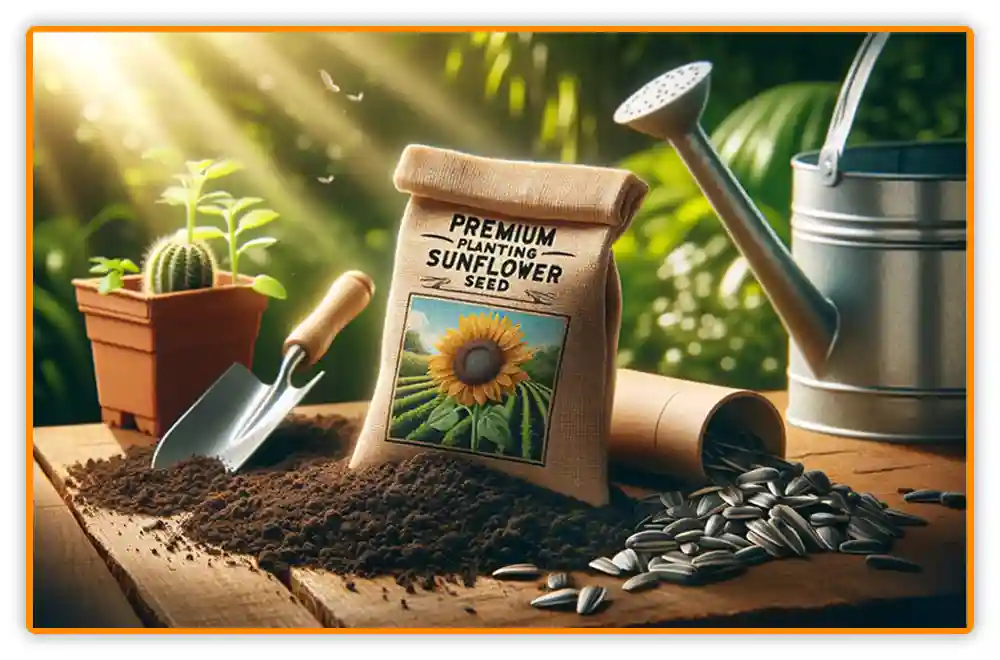
High Yield Potential: Pick seeds that make lots of seeds per flower or have big flowers. This is great for making oil or snacks. A study in the journal Genetika found that the sunflower hybrids NS8 and NS9 have a high yield potential. I’ve tried these in my garden, and the number of seeds was impressive!
| Hybrid Name | Characteristics |
| NS9 | Medium-late, high productivity, fits all production systems. |
| Big Max | Large seeds, high yield. |
| Titan | Adapts well, high yield. |
| Peredovik | Resists disease, high yield. |
Disease Resistance: Growing sunflowers can be hard because of diseases like downy mildew, rust, and sclerotinia head rot. Luckily, some sunflower types are better at fighting these diseases.
Research shows that “Mekushar” and “SKI-5” sunflowers resist downy mildew well. “Titan” and “Pacific 406” are good against rust. The USDA ARS also made “RHA 439” and “HA 441” to resist sclerotinia head rot. I remember planting “Titan” in my garden, and it stood strong while other plants got rust.
Climatic Adaptability: Choose sunflower types that match your area’s weather. If your place is often dry, go for types that can handle little rain well. I live in a dry region and found that drought-tolerant varieties like “Sunbright” worked best for me. It’s always smart to talk to local farm experts to make the best choice for your situation.
But these findings might not work the same everywhere. The place you grow your sunflowers and how you do it can make a big difference. It’s a good idea to ask local farm experts to make sure you pick the best sunflower seeds for your area.
Disease in plants can change, so what works now might not work later. Keeping up with new research is important to keep your sunflowers healthy.
Best Sunflower Seeds for Birds
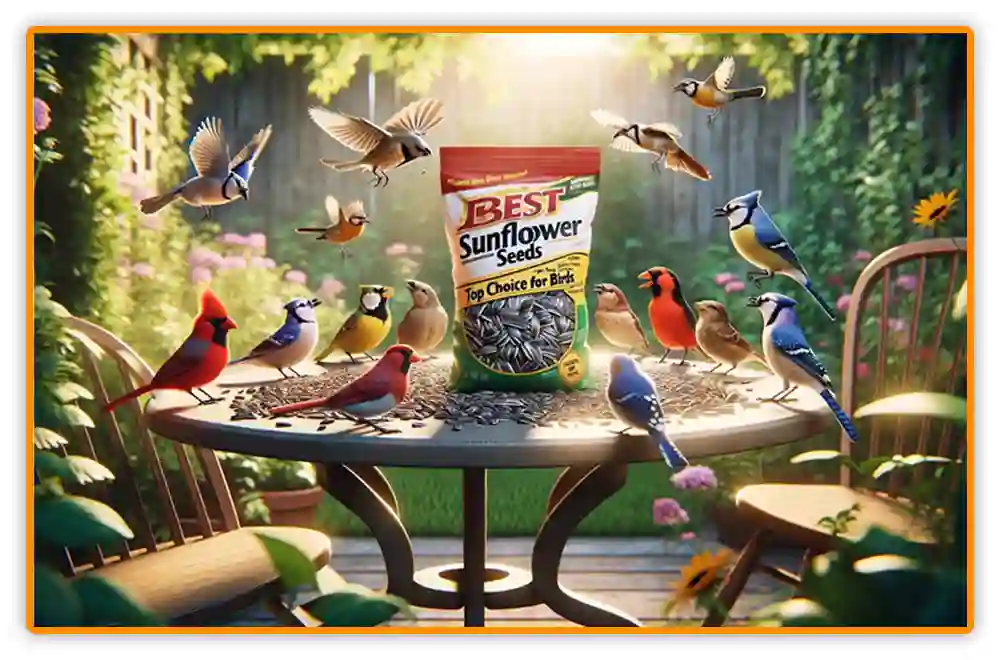
If you want to attract birds to your yard, black oil sunflower seeds are the best choice. They are nutritious and easy for many birds to eat. Sunflower hearts or chips are also great because they leave no shells, making for a cleaner feeding area. These seeds attract a wide range of birds, bringing life and color to your yard.
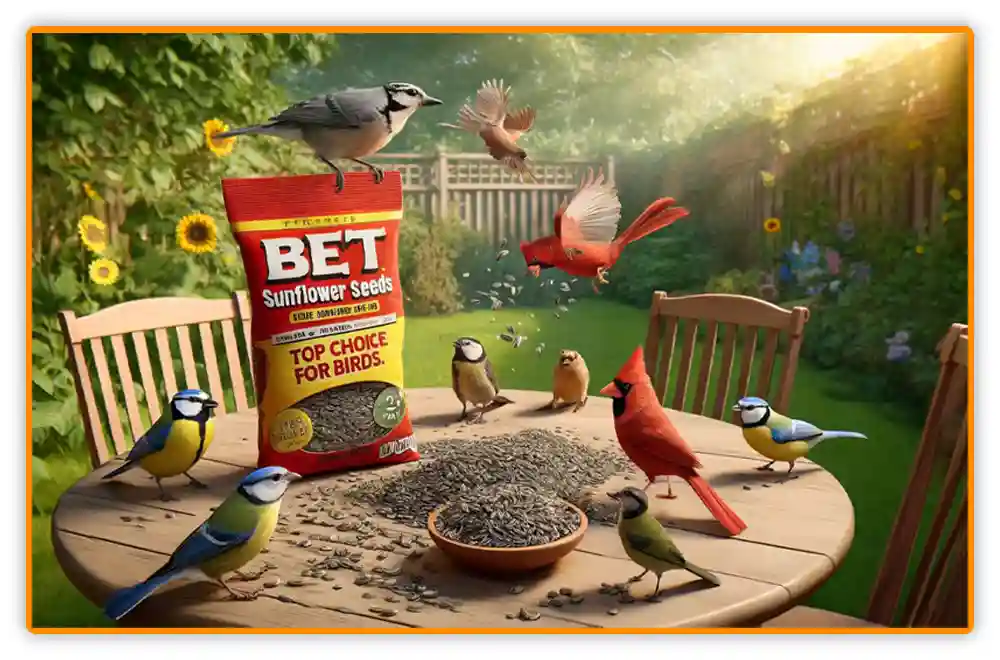
I remember the first time I filled my feeder with black oil sunflower seeds. Within minutes, my yard was bustling with activity. Finches, Cardinals, and Woodpeckers were among the first to arrive, followed by Mourning Doves and Blue Jays. It was like hosting a party for the neighborhood birds!
Why Black Oil Sunflower Seeds?
These seeds are packed with the right kind of fats and proteins that birds need. Their thin shells make them easy to crack open, even for smaller birds.
Clean Feeding with Sunflower Hearts or Chips
If you prefer a tidier feeding area, sunflower hearts or chips are perfect. They provide all the nutrition without the mess of shells. Plus, they attract the same variety of birds, ensuring your yard remains a lively spot.
Specialty Sunflower Seeds
Sunflower seeds aren’t just for snacking; they have special uses too. Here are some top picks for unique sunflower seed applications.
Best Sunflower Seeds for Microgreens
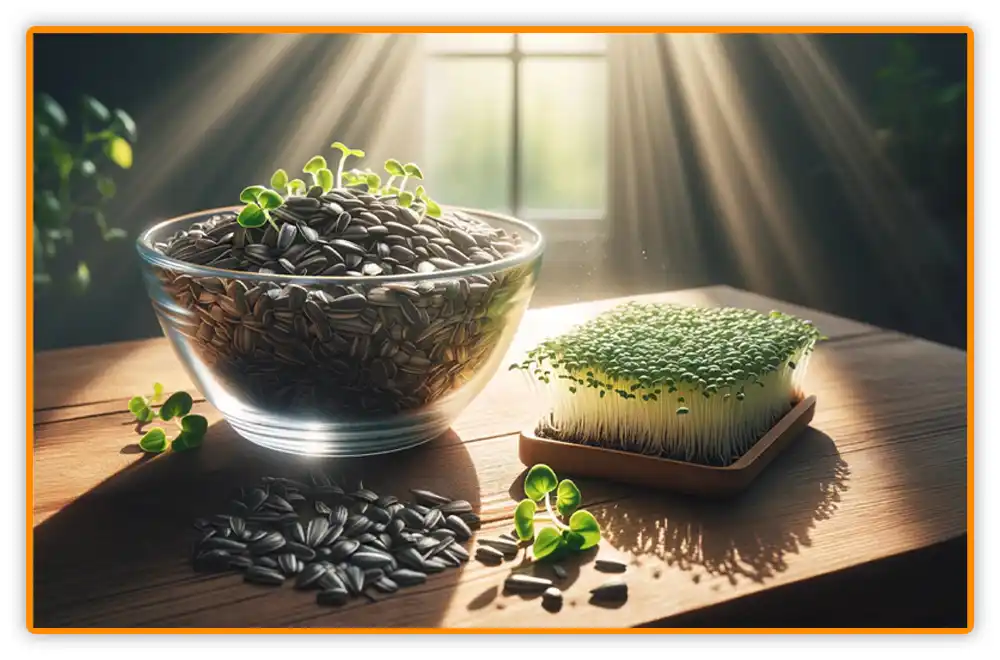
Black-oil sunflower seeds are the best for growing microgreens. They sprout fast and are packed with nutrients. These seeds are easy for anyone to grow and add a delicious, nutty taste to meals. I’ve grown them on my kitchen windowsill, and they thrive even in small spaces. They’re perfect for enhancing salads with fresh, healthy greens.
Best Sunflower Seeds Butter
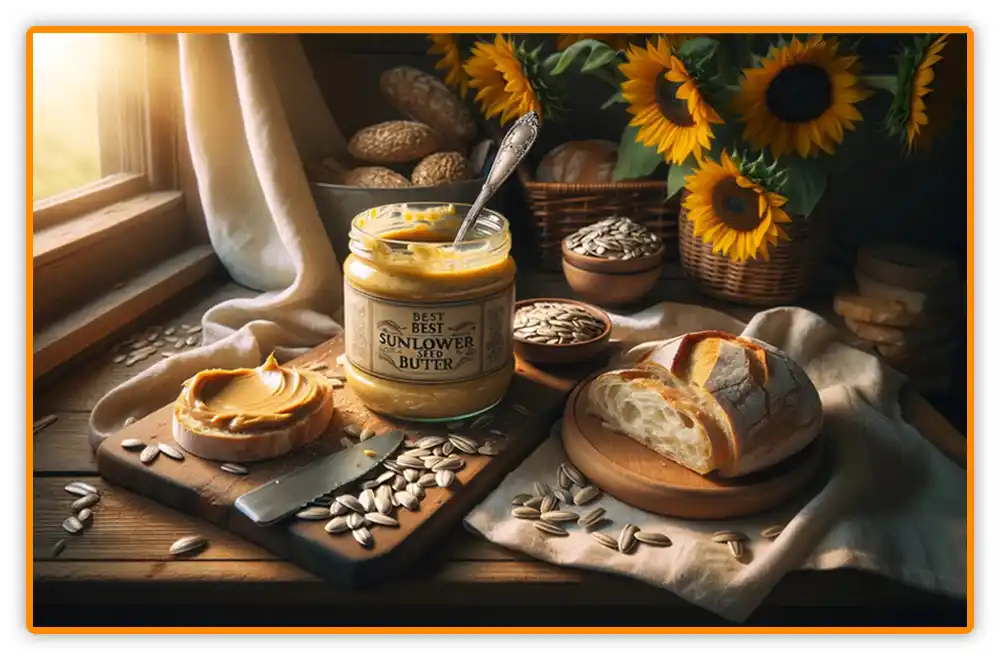
For the best sunflower seed butter, choose creamy sunflower seed butter made from roasted seeds. This enhances the flavor and makes for a delicious, nutty spread. I switched to sunflower seed butter when I found out my son was allergic to nuts. It’s now a family favorite, enjoyed on everything from toast to smoothies. It’s a healthy alternative, especially for those avoiding nuts. Enjoy it on your favorite snacks for a tasty boost.
Conclusion:
Choosing the best sunflower seeds comes down to taste, nutrition, and how they’re prepared. They’re a great snack full of energy and nutrients. Whether you prefer less salt, organic options, or bold flavors, there’s a perfect sunflower seed out there for you. Enjoy them as a tasty, healthy option!
If you have any questions about the best sunflower seeds, just comment below or email us at info@homelysolve.com.
FAQ
What is the best sunflower seed?
Best sunflower seed depends on use:
Bird feeding: Black oil (thin shells, high in fat)
Snacking: Giant Russian/Mammoth (large, meaty kernels)
Birds with strong beaks: Striped (tougher shells)
When is the best time to plant sunflower seeds?
The best time to plant sunflower seeds is after the last frost in spring, when the soil has warmed to at least 50 to 60°F (10 to 15°C). This ensures the seeds have a warm and stable environment for optimal germination and growth.
Which brand sunflower seeds are best ?
The best sunflower seed brand depends on your taste:
Spitz: Bold flavors (cracked pepper, garlic parmesan)
David: Classic, large seeds (original salted)
Bigs: Unique flavors (Sizzling Bacon, Old Bay Seasoned)
Which sunflowers are best for seeds?
The best sunflower seeds for snacking depend on your taste preference.
For snacking: Choose hulled for a lighter flavor, non-hulled for a richer taste.
For oil: Opt for Russian Mammoth with its high oil content.

